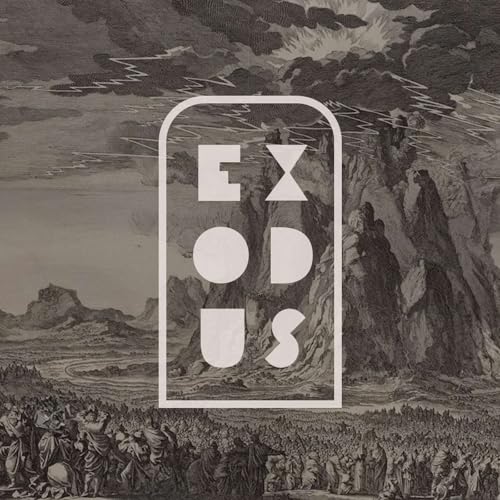
Exodus: Who Am I?
カートのアイテムが多すぎます
カートに追加できませんでした。
ウィッシュリストに追加できませんでした。
ほしい物リストの削除に失敗しました。
ポッドキャストのフォローに失敗しました
ポッドキャストのフォロー解除に失敗しました
-
ナレーター:
-
著者:
このコンテンツについて
Welcome to the sermon. Today we're in Exodus 3 & 4, exploring one of life's most foundational questions: "Who am I?" Through Moses's encounter at the burning bush, we'll confront the shame and insecurity that so often writes our life's story. We'll see how God's answer to our feelings of inadequacy is profoundly different from the world's, shifting our focus from our weakness to His powerful presence.
Scripture References
- Exodus 3:1-14: The Burning Bush, God's call, and Moses's first question, "Who am I?"
- Exodus 4:1-17: Moses's excuses, God's provision of signs, and His promise of help.
Key Points
1. Unredeemed Shame Writes Our Story
Our behavior is rooted in what we believe about ourselves. While guilt says "I did something bad," shame says "I am bad." If this shame isn't redeemed, it becomes the author of our story, creating vows that dictate our actions. Moses was crippled by shame: he felt he belonged nowhere, was a failure rejected by everyone, was too old, and was disabled by a speech impediment. His shame was about to make him miss his destiny.
2. The World's Answer vs. God's Answer
How does God respond to Moses's crippling insecurity? Our culture—and even AI—advises self-reflection, validation, and positive reinforcement. The goal is self-love. God's approach is completely different. When Moses asks, "Who am I?", God doesn't list Moses's qualifications or tell him "You've got this." Instead, He gives a radically different answer that changes the entire equation: "I will be with you."
3. God's Presence is the Antidote to Pride
God's answer isn't a non-answer; it's the only answer. Focusing on ourselves leads to one of two places: pride ("I am adequate") or insecurity ("I am inadequate"). Both are forms of pride because they are self-obsessed. The way out is to stop looking inward, which leads to depression, and to look at God, which leads to rest. God's presence, not our adequacy, is the foundation for our calling.
Conclusion
God's promise, "I will be with you," is the definitive answer to our deepest insecurities. He doesn't call the adequate; He makes Himself present to the inadequate. Even God's anger at Moses's final excuse was the protective love of a Father, angry for him, not wanting him to miss his destiny. God wants to take the pen from the hand of your shame and become the true Author of your story.
Calls to Action
- Identify the Script: Recognize where shame, rather than God's truth, is writing the script for your life.
- Shift Your Focus: When you feel inadequate, intentionally shift your question from "Who am I?" to "Who is the God that is with me?"
- Rest in His Presence: Stop striving to become adequate. Instead, receive the promise that He is with you as your all-sufficient help.
Support the show
*Summaries and transcripts are generated using AI.
Please notify us if you find any errors.


